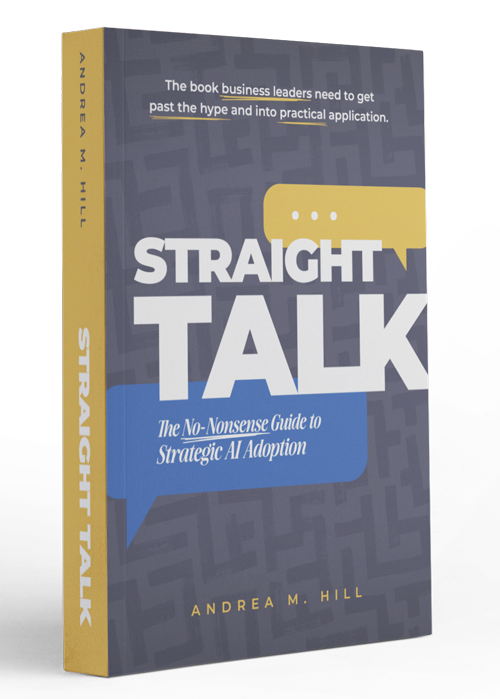SEO Terms Primer

SEO, or search engine optimization, is one of the most important practices for increasing the visibility of your website, building credibility and trust for your online presence, and attracting qualified traffic. SEO by itself is not a silver bullet, but as part of an inbound marketing strategy (or, honestly, any marketing strategy, though we do have a bias toward inbound at Werx.Marketing) it packs a powerful wallop as an online business booster.
But there are a few caveats:
- While technical SEO is all about system/site performance, on-page and off-page SEO are far more qualitative. Make sure that any SEO partner you work with is creating high quality content entirely relevant to your brand identity and how you want your brand to be perceived.
- Not all traffic is the same! Quoting Werx.Marketing owner Andrea Hill, "You don't need all the customers—you just need the right customers," make sure your SEO partner understands who the right customers are and that their efforts are attracting exactly those customers.
- Don't fall for "you have to cast a wide net, you can qualify the leads later," logic. That's not accurate, and it often serves as a justification for high volumes of leads that make your SEO look like it's working but don't result in sales. Marketing IS a numbers game, but it's a numbers game even when you attract the right customers. Of every 100 leads you attract to your website, you should be able to get 2% of them to click on something, and 2% of those to buy something. If your SEO isn't doing at least that, then all the traffic in the world is just a waste of time and resources.
But we digress! This is supposed to be an SEO terms primer, so here are those definitions we promised!
-
Search Engine Optimization (SEO): The practice of optimizing your website and its content to improve its visibility and ranking in search engine results pages (SERPs).
-
Keyword: Any phrase (it used to be any word, but ranking on an individual word is next to impossible now) that people use to search for information or products online. Keywords are the essential building block of SEO. You choose keywords strategically to attract qualified (relevant) traffic to your website.
-
SERP: Stands for Search Engine Results Page. A SERP is the page a search engine displays in response to a search query.
-
Organic Traffic: The traffic that comes to your website from unpaid, natural search engine results (as opposed to paid advertisements).
-
Backlink: A hyperlink on someone else's website that brings visitors to your website. Backlinks are an important SEO ranking factor. If your backlinks are coming from another website with high trust and credibility it can improve your website's authority and visibility in search engines.
-
On-Page Optimization: The process of optimizing individual web pages to improve their search engine rankings. This includes optimizing content, meta tags, headers, URL structure, and internal linking.
-
Off-Page Optimization: SEO activities performed outside of your website to improve its visibility and authority. This includes link building (backlinks), social media marketing, guest blogging, expert marketing (like articles on LinkedIn or in trade or consumer publications), and influencer outreach.
-
Meta Tags: HTML tags that provide information about a web page to search engines. This information is not visible to readers, but instead, is only visible on the backend to search bots. The most important meta tags for SEO are the title tag (the title of the page, which may be slightly different than the title you display) and the meta description tag (which provides a brief summary of the page content).
-
Alt Text: A description of the image that is added to an image's HTML tag. It helps search engines understand the content of an image and is essential for image optimization. Alt Text is also a very important part of website accessibility.
-
Canonical URL: A canonical URL is the preferred version of a webpage that search engines should index when there are multiple versions of the same page available.
-
XML Sitemap: A file that lists all the important pages of a website and provides search engines with information about their organization, including the last update, priority, and frequency of changes.
-
Page Speed: The time it takes for a web page to load. Page speed is an important ranking factor, as faster-loading pages provide a better user experience.
-
Mobile Optimization: The process of optimizing a website for mobile devices, ensuring that it is responsive, loads quickly, and provides a seamless user experience on smartphones and tablets.
-
CTR (Click-Through Rate): The percentage of people who click on a specific link or ad out of the total number of people who view it. CTR is often used as a metric to measure the effectiveness of organic search results or online advertising campaigns.
-
Analytics: Tools and software that provide data and insights about website traffic, user behavior, conversion rates, and other metrics. Google Analytics is a popular example of a website analytics tool.
These terms should give you a good starting point in understanding the key concepts and terminology used in SEO.
Andrea Hill's
Latest Book
Straight Talk
The No-Nonsense Guide to Strategic AI Adoption

Where other books focus on prompts and tools, this book gives business leaders what they actually need: the frameworks and confidence to lead AI adoption responsibly, without having to become technologists themselves.
Also available at independent booksellers and public libraries.
Are You Ready to Do Better Marketing?
WerxMarketing is all about performance marketing. That means giving you the tools you need to connect with customers, enable your sales efforts, and turn leads into loyal customers. Ready to learn more about how we do that? Book a free consult and bring your questions. See if you like working with us on our dime, and get some good advice in the process.